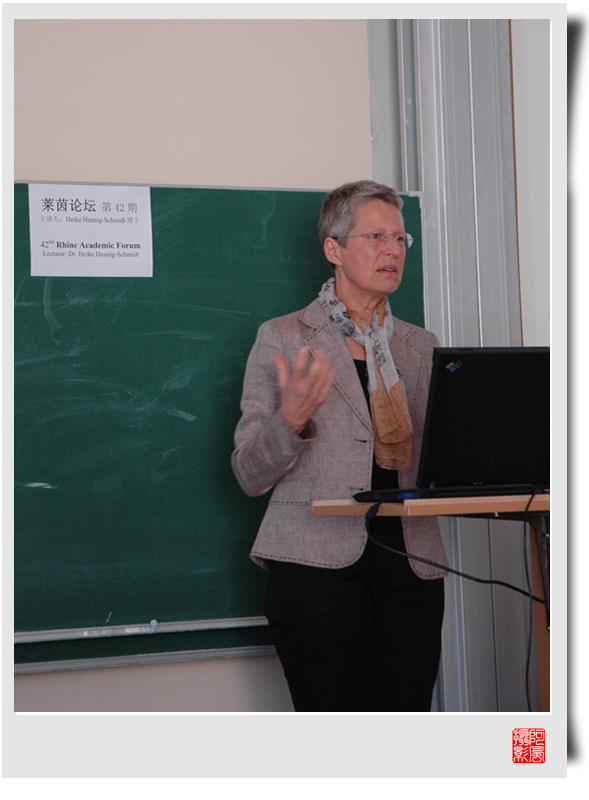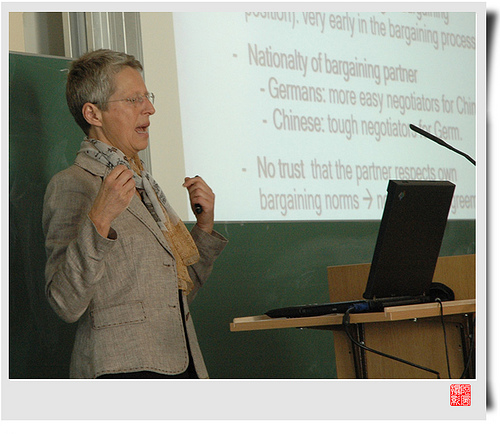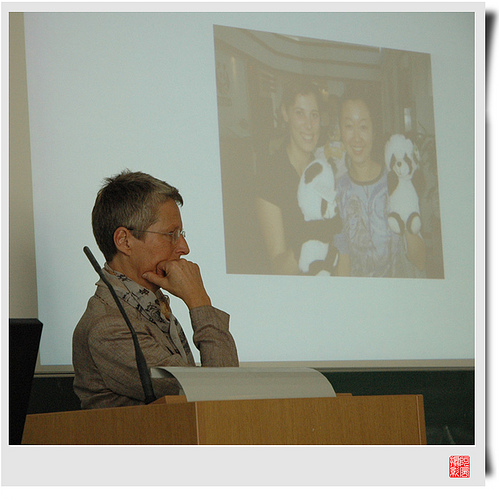Presented
by: Dr. Heike Hennig-Schmidt
Summary
Bargaining belongs to the most frequent phenomena in social interactions being the essential activity in management, international trade, national and international politics. Understanding the behavior of bargaining partners, their goals and motivations are a prerequisite for reaching a mutually satisfactory agreement. This is even more important if the cultural background of the parties is different like with Western and Asian partners. Successful business relations can only be created and sustained if uncertainties due to misunderstanding are removed.
Because of disparities in Chinese and Western value systems negotiations and joint business projects might become extremely difficult if partners are not aware of these cultural differences. Most Western Chinese cross-cultural investigations of negotiations are based on questionnaire studies or analyses of interviews. In these studies, the data are collected retrospectively from managers who are involved in cross-cultural trade. It would be much more desirable, however, to get direct information on the decision making process within the negotiating teams, e.g. by direct observation, to learn about the respective negotiation tactics, motivations, argumentation and perception as well as the cultural differences in these factors. In questionnaires and interviews these elements might not be reported and if they are reported they cannot be verified since, in general, there is no reliable information on the in-group processes of the other party involved. For obvious reasons simultaneous but distinct observation of negotiating teams in the “real world“ is rather unlikely.
Economic experiments allow such investigations. The goal of experimental economics is to study human judgment and decision-making. Experimental economics is a valid method of analysis because of a variety of advantages compared to field data and questionnaire studies. The empirical data used in experimental economics is gathered in experiments in which human subjects make real decisions in economically relevant decision situations supplied with monetary incentives. Experimental conditions can be varied in a controlled manner. Therefore, changes in behavior can be attributed to these modifications. Finally, different experimenters can repeat the same experiment under equal conditions in order to test for the robustness of the results.
We want to emphasize that laboratory experiments are not a substitute for survey or field data or even field experiments. It is the combination of methods of which laboratory experiments are an important constituent that enables a better understanding of human behavior.
In my talk, I report results of several cross-cultural experimental studies on bargaining. I and my co-authors analyzed computer and video experiment. In the latter, teams of bargainers decide together and are video taped. We investigate the transcripts of the videos. Even though negotiation outcomes for Germans and Chinese often are similar, we find the bargaining process and the motivations behind the proposals to sometimes differ substantially between the two cultures.
The Speaker
Academic Positions
Since 2000 Head of Laboratory of Experimental
Economics, Bonn University
Since 1998 Research Associate, Economics
Department, Bonn University
1985 - 1999 Research Assistant at Collaborative
Research Centre (Sonderforschungsbereich)
303 ?Information and Allocation of Economic
Activities”, University of Bonn,Germany;
Managing Assistant of the Collaborative
Research Centre
1980 - 1984 Research Assistant at the Collaborative
Research Centre 21 "Economic Forecast and
Equilibrium Models", University of Bonn,
Germany


